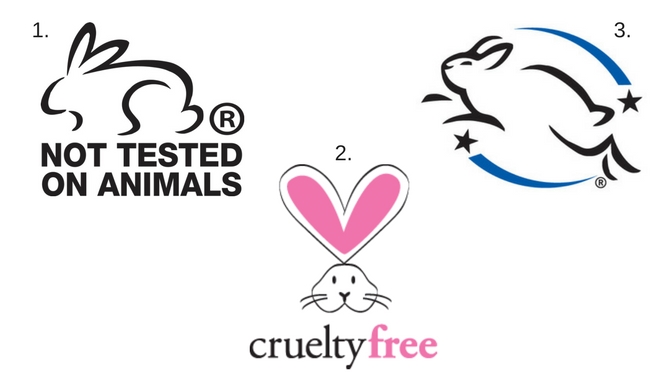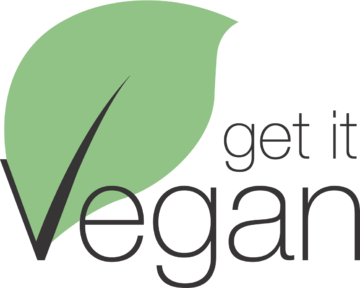Mascara
Vegan and cruelty-free mascara. Shop with confidence knowing that all of the makeup products we list on Get it Vegan, including mascara, are 100% free of animal by-products, ingredients and testing.
Mascara
What is ‘vegan’ & ‘cruelty-free’ mascara?
The term “vegan”, with regard to mascara, refers to mascara that doesn’t contain ingredients that are derived or sourced from animals or insects, whereas the term “cruelty-free” refers to mascara that's free of animal testing, including the individual ingredients used in it.
In other words, ‘cruelty-free’ refers to the safety of testing methods, while ‘vegan’ refers to the origin of the mascara’s ingredients.
What animal and insect-derived ingredients are commonly used in mascara?
While it certainly isn’t exhaustive, we’ve put together a list of some of the most common animal and insect-derived ingredients that are used in non-vegan mascaras.
We’ve also included the origins of these ingredients, the purposes that they’re used for in mascara, and some of their animal-friendly alternatives.
Beeswax: Beeswax is made from melting honeycomb with boiling water, straining it, and cooling it. It helps to keep mascara from separating into its oil and liquid components. It also increases the thickness of mascara, allowing for a smooth application. It also happens that many bees are killed or have their wings and legs torn off because of haphazard handling when they are farmed.
- Aliases: Apic cerana, Apis Mel, Apis mellifera, Apis Mellifica, Cera Alba, Cera Flava.
- Vegan alternatives to beeswax: Candelilla wax; Soy wax; Sustainable carnauba wax, Cerecin.
Tallow: The process of making tallow involves boiling the carcasses of slaughtered animals until a fatty substance is produced.
- Aliases: Tallow Fatty Alcohol; Stearic Acid; Rendered beef fat.
- Vegan alternatives to tallow: Vegetable tallow, Japan tallow, Ceresin.
Guanine: Used in mascaras to achieve a light-diffusing effect. It’s taken from fish scales and acids that are located in animal tissue.
- Aliases: Pearl Essence.
- Vegan alternatives to guanine: Leguminous plants, synthetic pearl, fruit pigments, aluminum and bronze particles or mica - a natural shimmery mineral.
Do mascara brands lie about being cruelty-free?
Many unscrupulous cosmetics brands use a variety of terms to mislead consumers into believing that what they’re buying is 100% cruelty-free.
Unfortunately, since these terms are unregulated, companies are free to use them in any way they see fit.
For example, here are some common misleading statements you might find on mascara packaging, and what they actually mean:
- “Against animal testing”: Just words on a box. This could mean that the company is opposed to animal testing, but does it anyways.
- “We don’t test on animals”: This product was not tested on animals, but its individual ingredients were.
- “Cruelty-free”: Could mean anything, without 3rd party verification, they’re expecting you to take it on blind faith. In many cases, it’s an outright lie.
So then how can I be sure the mascara I’m buying is cruelty-free?
Despite the rampant usage of misleading terminology, there are several legitimate third party certification bodies that assess whether or not companies and products are actually cruelty-free.
So, the best way to ensure that you’re buying a cruelty-free mascara is to find one with that has the approval of one of these third party certification bodies printed on it, by looking for one of their logos. 3 of the most common cruelty-free labels include:
2. PETA
3. The Coalition for Consumer Information on Cosmetics - Leaping Bunny Program
Tip: Don’t be fooled! Some companies will go so far as to put a random bunny on their product in an effort to fool you into thinking that it’s associated with some non-specified certification body. If you’re not sure about a logo, do your research on it.
What brands make vegan & cruelty-free mascara?
The following brands (not an inclusive list - more companies are ‘veganizing’ all the time) make mascara that’s full vegan and cruelty-free, in other words, completely animal-friendly!
- ADORN Cosmetics
- ARDENCY INN
- Beauty Without Cruelty
- Cate McNabb Cosmetics
- DeVita
- DuWop
- e.l.f. Cosmetics
- Elate Clean Cosmetics
- FACE Atelier
- Gabriel Cosmetics
- ILIA Beauty
- INIKA
Please Note: For the sake of simplicity, this list does not include brands that have ‘vegan options’. It only includes companies whose mascara is all vegan and cruelty-free.
Is vegan & cruelty-free mascara expensive?
In general, vegan and cruelty-free mascara is not any more expensive, or any less-expensive, than mascara that contains animal/insect derived or tested ingredients.
Just like “normal” versions, the prices of vegan & cruelty-free mascara can vary based on differences in the quality and the availability of the ingredients used, differences in the manufacturing processes employed, different brand names behind them, as well as various other factors.
Why should I buy ‘vegan’ & ‘cruelty-free’ mascara?
Who wants to smear rendered animal fat on their eyelashes?? Aside from the ‘icky factor’, it’s important to buy mascara that you know is vegan & cruelty-free because it’s a way to vote with your dollars, which creates demand for these products, reduces demand for non-vegan/non-cruelty-free products, and is thus a very effective form of animal-welfare activism!
Basically, if we as consumers stop paying companies to put these grotesque and cruelty-ridden ingredients in mascara, they will stop doing it.
Similar product categories
If you’ve found this page on vegan and cruelty-free mascara helpful, check out similar product categories to learn or shop more:
For companies that make vegan & cruelty-free mascara
If you make vegan and cruelty-free lengthening, volumizing, or other forms of mascara, or any other vegan/cruelty-free product for that matter, we’d love to feature you and your products on the “Brands We Love” section of our site! Contact us at - info(at)getitvegan(dot)com - to get started!
Sources
Some of the information for this guide on vegan & cruelty-free mascara was gathered from the following sources:
- Living: “Animal-Derived Ingredients List.” (n.d.). PETA. Retrieved June 21, 2017. https://www.peta.org/living/other/animal-ingredients-list/
- Blog: “Are Your Cosmetics Vegan?” Kourtney Linebaugh (October 27, 2012). Gentle World. Retrieved June 21, 2017. http://gentleworld.org/are-your-cosmetics-vegan/
- Skin Care Myths: “13 Animal Products in Cosmetics.” Lorraine Dallmeier (n.d.). Herb & Hedge Row. Retrieved April 21, 2017. http://www.herbhedgerow.co.uk/animal-products-in-cosmetics/
- Resources: “Watch Out For These Cruelty-Free Labelling Loopholes!” Vicky Ly (July 30, 2015). Gentle World. Retrieved June 21, 2017. http://ethicalelephant.com/cruelty-free-loopholes/


